CANITAS, Panama (Feb. 10, 2009) Aca,!" As the Medical Readiness Training Exercise, or MEDRETE, got underway Feb. 2, a long line of people waited patiently outside a grade school in this small, rural town for their turn to be treated by teams of Panamanian health officials and U.S. Army medical practitioners. Across the school playground, Army animal care specialists administered medicine, vaccine and vitamins to a steady flow of reluctant cats, dogs, rabbits, goats, cattle and horses. Children ranging in all ages ate snow cones and ran around playing tag as their parents looked on in curious anticipation.
The Soldiers are primarily members of the 7218th Medical Support Unit, an Army Reserve detachment from Louisville, Ky. They arrived here eight days ago for their two-week annual training as part of a U.S. Army South initiative to build hemispheric relationships with countries in Latin America and the Caribbean.
The chief benefactors, however, were the citizens of agricultural communities like Canitas, who have limited access to medical, dental and veterinarian facilities. Canitas is the final stop on the SoldiersAca,!a,,c itinerary after completing MEDRETEs in the nearby towns of Torti and Paso Blanco.
A number of the Soldiers have performed this type of humanitarian mission before, while others, such as Pvt. 1st Class Lashawndra Conley, a patient administrator in her second year in the Army, are on their maiden assignment overseas.
Aca,!A"I am very excited to be here to meet these people and experience a new culture,Aca,!A? said Conley. Aca,!A"This is also giving me a lot of experience to sharpen my job skills. My dream has always been to work in the medical field and help people, and to see how my work is doing that here, thatAca,!a,,cs the best part of all.Aca,!A?
After passing through the welcome entrance where personal data and health concerns are recorded, patients move to the triage station where nurses evaluate their condition, take vital signs and give them medicine, vitamins and other health items. From there itAca,!a,,cs on to the doctors who perform a basic checkup, prescribe medication and give advice and referrals as needed.
Capt. Gigi Manuel-East, a triage nurse and 16-year Army veteran, is also on her first visit to Panama. The Kentucky nativeAca,!a,,cs infectious smile and warm personality kept everyone around her light hearted as she and her triage team-members fawned over the local babies and comforted the ones who were simply overcome by all the activity.
Patients were then directed to the dental treatment area where they underwent an oral examination. The dental area, equipped with two reclining chairs and tables laden with sterile dental tools, gauze pads and injection needles, was without a doubt the least favorite stop amongst those unlucky numbers requiring tooth extractions.
Aca,!A"We are only set up to do basic dental procedures here,Aca,!A? said Capt. Kirk Yegerlehner, one of two dentists who, along with their assistants, worked tirelessly to keep up with the steady stream of patients going through. Aca,!A"WeAca,!a,,cre seeing a lot of tooth decay and gum disease from inadequate oral hygiene and inaccessible dental care. If a tooth is causing discomfort and is in poor condition, we will extract it to give pain-relief to the person.Aca,!A?
The optometry area was a welcome site for those patients suffering from vision problems. Here, patients received an eye examination and were fitted with glasses on the spot. Many emerged from the room wearing their new glasses along with big smiles at their newfound ability to see things in focus.
The Army has designated 2009 as the Aca,!A"Year of the Non-Commissioned OfficerAca,!A? and NCOs from the 7218th have taken a leading role in ensuring their Soldiers get the quality training they deserve while providing a real-world humanitarian service to the Panamanian people.
Aca,!A"What happens on a lot of these missions is that the officers do the initial planning then they pass the baton over to the NCOs,Aca,!A? said Sgt. 1st Class William Pierce, the NCO in charge. Aca,!A"Of all the missions IAca,!a,,cve been on like this, the NCOs basically run it, so itAca,!a,,cs good for the Soldiers to see that the NCOs are taking a lead position and weAca,!a,,cre running it. WeAca,!a,,cre also taking care of the Soldiers.Aca,!A?
In addition to the experiences gained from two weeks of treating some 400 animals and administering health care to more than 4,000 people, the Soldiers will return home knowing that their service benefitted the Panamanian people.
Aca,!A"Back home, we have so much and so many opportunities to walk into a doctorAca,!a,,cs office and receive medical care that itAca,!a,,cs easy to take it for granted,Aca,!A? said Manuel-East. Aca,!A"A lot of these villagers havenAca,!a,,ct seen a doctor in several years, so it just makes me feel good that IAca,!a,,cm actually doing something to help improve the lives of other people.Aca,!A?
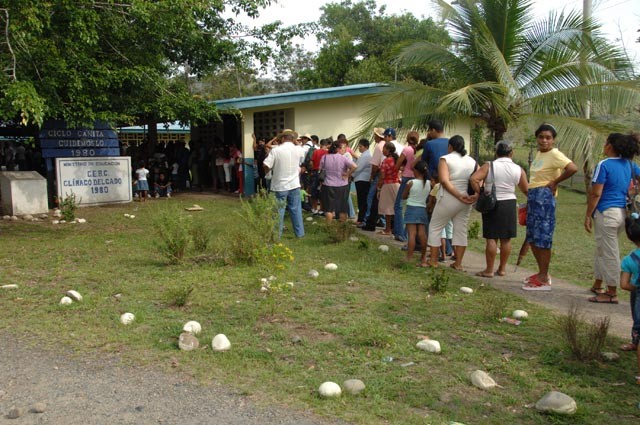
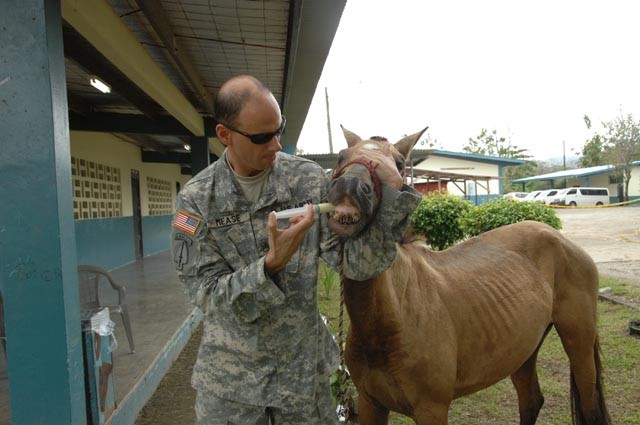
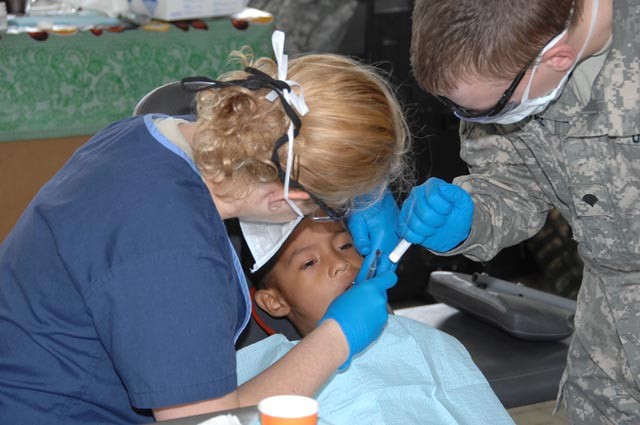
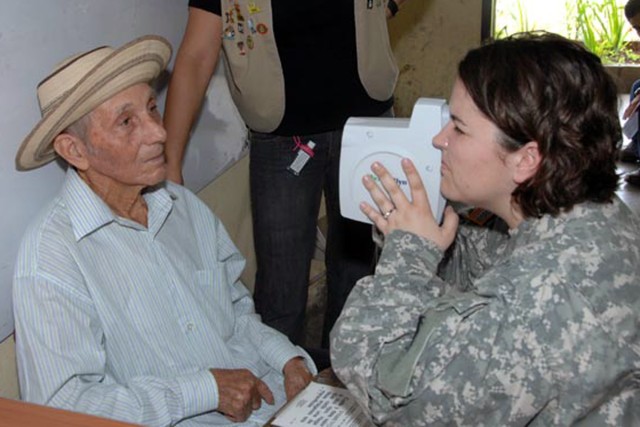
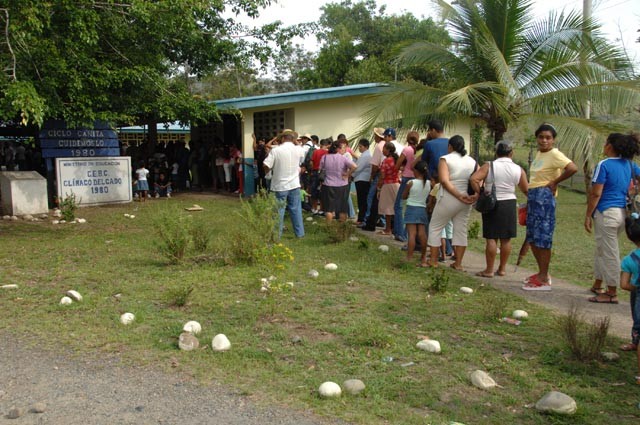
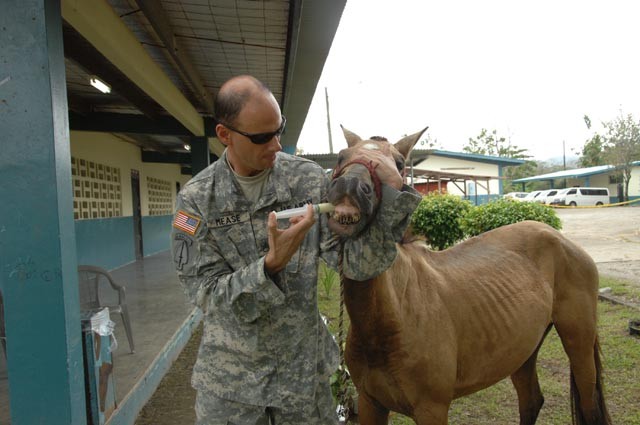


Social Sharing